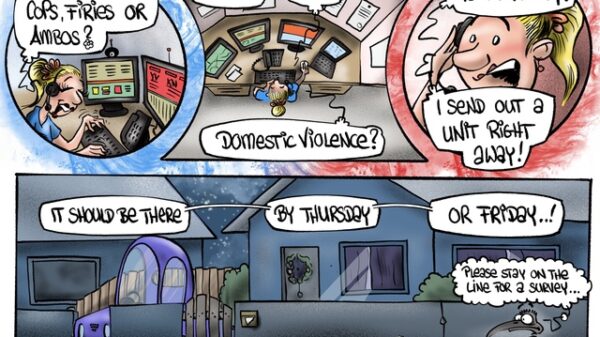UPDATE: European defence ministers have urgently pledged to increase support for Ukraine and intensify pressure on Russia following a deadly air assault on Kyiv that killed 23 people and severely damaged an EU diplomatic compound. The attack, which took place on Thursday, has sparked widespread outrage, prompting European leaders to call for immediate and tougher measures against Moscow.
Just a day after the attack, Kaja Kallas, the EU’s foreign policy chief, stated, “Everybody understands that, considering how Russian President Vladimir Putin is mocking the peace efforts, the only thing that works is pressure.” This declaration came during a critical meeting in Copenhagen on Friday, where defence ministers discussed deploying European troops to Ukraine to ensure security and monitor a peace that appears increasingly distant.
The situation has escalated, with a coalition of 30 countries, including European nations, Japan, and Australia, pledging support for Ukraine’s military efforts. Kallas emphasized that in terms of security guarantees, the United States expects Europe to shoulder “the lion’s share” of the burden. The exact role of the US remains unclear, especially as former President Trump has ruled out sending troops to Ukraine.
Just hours after the attack on Kyiv, which saw two missiles land perilously close to an EU diplomatic mission, the EU summoned Russia’s envoy in Brussels. Officials stated that the damages “are serious and constitute a violation of the Vienna Convention on Diplomatic Relations,” according to Anitta Hipper, an EU foreign policy spokesperson.
In response to the escalating crisis, the UN Security Council has scheduled an emergency meeting for Friday afternoon to discuss the air strikes on Ukraine, following requests from Ukraine and five European council members — Britain, France, Slovenia, Denmark, and Greece.
As the international community grapples with this urgent situation, two of Ukraine’s top diplomats are set to meet with the Trump administration regarding mediation efforts. White House press secretary Karoline Leavitt voiced criticism for both Putin and Ukrainian President Volodymyr Zelenskiy, stating that Trump “was not happy about this news, but he was also not surprised.” She noted that both sides of the conflict appear hesitant to end hostilities.
During the Copenhagen meeting, Kallas and the defence ministers discussed enhancing sanctions on Russia and ramping up military supplies to Ukraine’s forces. The EU currently has €6.6 billion (approximately $7 billion) blocked due to Hungary’s veto, which could potentially be redirected to Ukraine through NATO’s new prioritised requirements list.
Adding to the urgency, the United States has approved a significant arms sale to Ukraine, valued at $825 million (around €780 million), which includes extended-range missiles and related equipment aimed at bolstering Ukraine’s defensive capabilities.
In a stark assessment of the situation, Lithuania’s Defence Minister Dovilė Šakalienė remarked that the attack on Kyiv indicates that hopes for peace are increasingly naive. “All Putin is doing is really stalling, actually cheaply buying time to kill more people,” she said, calling for Europe to respond more forcefully, including the seizure of frozen Russian assets.
The situation remains fluid as European leaders prepare to take decisive actions in the coming hours. The world is watching closely as this crisis unfolds, with implications that could reshape the security landscape in Europe and beyond.





























































